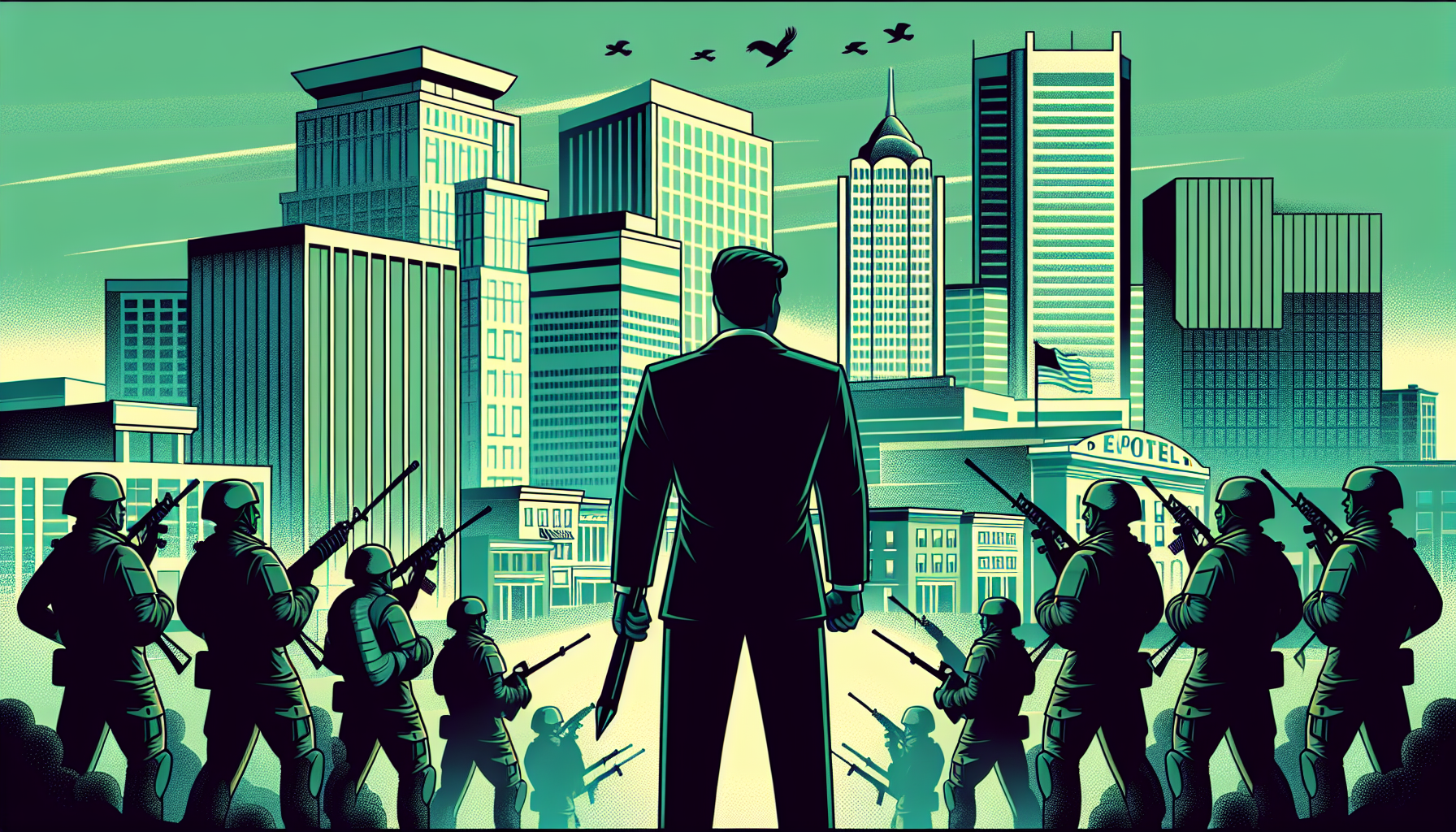President Trump is threatening to send the National Guard into other Democratic-led cities, just days after ordering troops into Washington. One of his main targets is Baltimore. Maryland Gov. Wes Moore called the threats inappropriate and invited the preside…
Why it matters
- The potential deployment of the National Guard in Democratic-led cities could escalate tensions between the federal government and local authorities.
- Governor Wes Moore's response highlights the contentious political climate and raises questions about federal overreach.
- The situation may influence public perception and voter sentiment ahead of upcoming elections.
In a recent escalation of rhetoric, President Donald Trump has threatened to deploy the National Guard to other cities governed by Democrats, following his controversial decision to send troops to Washington, D.C., amidst heightened civil unrest. One of the cities prominently mentioned by the President is Baltimore, Maryland, a city that has faced significant challenges related to crime and economic disparity.
Maryland Governor Wes Moore responded to Trump’s threats by labeling them as inappropriate, emphasizing the importance of local governance and the need for collaboration rather than confrontation. Governor Moore stated, “We should be working together to find solutions, not resorting to threats that may only serve to deepen divisions.” His remarks reflect a growing concern among state leaders regarding federal intervention in local matters, particularly in cities that are already grappling with their own set of challenges.
The President’s comments come at a time when tensions are high across the nation, especially in urban areas where protests and calls for police reform have sparked heated debates. Baltimore, in particular, has been the center of discussions regarding systemic racism and police accountability, making Trump's remarks particularly provocative.
Critics argue that the threat of deploying the National Guard is a form of intimidation, aimed at suppressing dissent and undermining the autonomy of local governments. The idea of federal troops in American cities has historically been a contentious issue, often viewed as a last resort in times of extreme unrest. This recent threat raises significant questions about the appropriate role of federal law enforcement and military forces in domestic affairs.
The National Guard has been used in various capacities throughout U.S. history, from responding to natural disasters to quelling civil disturbances. However, its use in a policing capacity has often been met with mixed reactions. Many community leaders and activists fear that such actions could lead to increased violence and unrest, rather than the peace that is purportedly being sought.
Furthermore, Trump’s focus on Baltimore may be politically motivated, as he has frequently used the city as a rhetorical device to underscore his criticisms of Democratic leadership. His administration has previously targeted several cities with high crime rates, suggesting they are not doing enough to maintain law and order. This strategy appears to be a continuation of Trump’s approach to galvanize his base by framing urban areas as unsafe and in need of federal oversight.
In the wake of these threats, discussions have emerged about the implications for state rights and the balance of power between state and federal authorities. Legal experts suggest that while the President has the authority to deploy the National Guard, there are constitutional limits to the use of military force within U.S. borders. The Posse Comitatus Act, enacted in 1878, restricts the use of federal troops for domestic law enforcement purposes, adding another layer of complexity to this situation.
As the political landscape continues to evolve, the fallout from Trump’s comments could have lasting impacts on public opinion and voter behavior. With elections approaching, the narrative around safety, governance, and federal intervention is likely to become a central theme in campaigns across the country.
For now, the focus remains on the reactions from local leaders and community members as they navigate this turbulent political environment. As tensions rise, the call for dialogue and cooperation becomes increasingly urgent, underscoring the need for effective leadership that prioritizes community well-being over political posturing. The unfolding situation in Baltimore and other Democratic-led cities will undoubtedly be watched closely by both supporters and opponents of the President’s policies.











